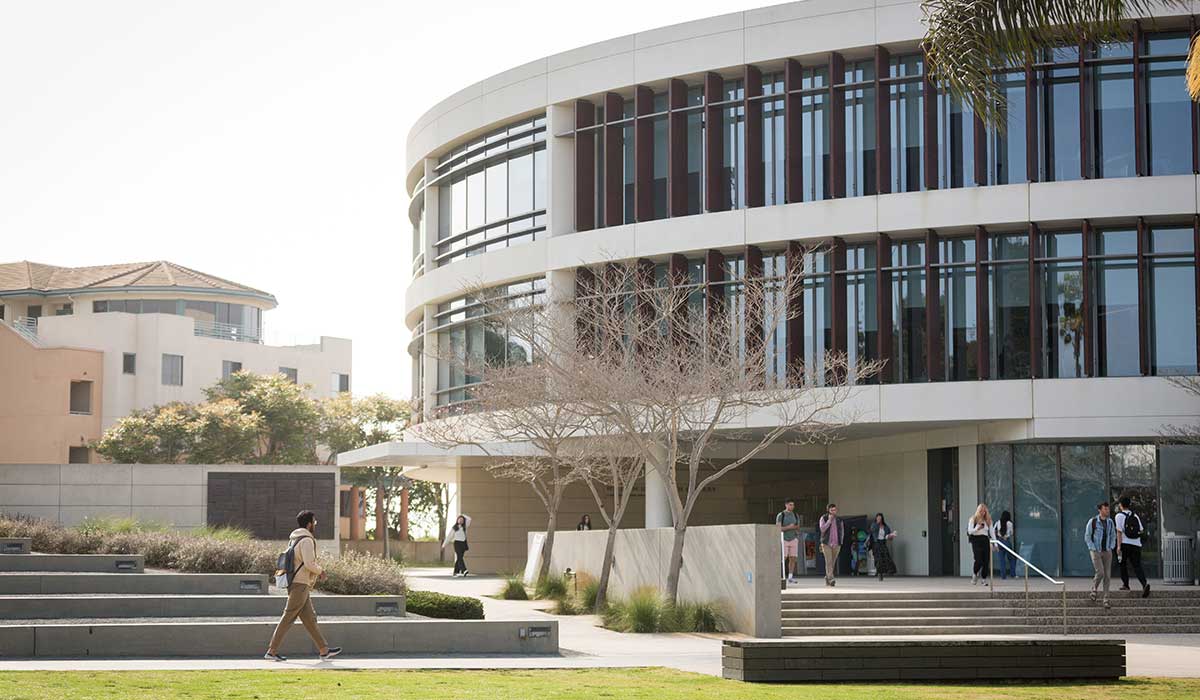
Program Overview
LMU’s school psychology programs prepare you to offer behavioral, social-emotional, and academic support to students in preK-12 schools and educational settings. We provide an evidence-based, research-backed curriculum combined with meaningful fieldwork experiences, designed for those who want to work as school psychologists in California public and charter schools.
Graduates of our NASP-approved school psychology program are eligible for the following professional affiliations:
- Nationally Certified School Psychologist (NCSP) credential, upon passing the Praxis II exam
- Licensed Educational Psychologist (LEP) designation upon completing board requirements
Program Details
Degree(s) Awarded
- Master of Arts (M.A.) in Educational Psychology
- Education Specialist (Ed.S.) in School Psychology
- California Pupil Personnel Services (PPS) Credential in School Psychology
- Licensed Educational Psychologist (LEP) eligible
- Nationally Certified School Psychologist (NCSP) eligible
Cohort Program?
Yes
Typical Program Length
3 years
- 63 course units
- 500-hour practicum
- 1,200-hour internship
Estimated Cost
$1,726 per unit plus fees; visit Graduate Cost of Attendance for more details
Teaching Modality
Either in-person or online (indicate preference on application); all applicants must reside in California
Course Meeting Times
Weekdays in late afternoons and evenings
Next Application Deadline
February 6, 2026
Next Program Start Date
June 2026 (Summer Session II)
Admission

Prerequisites
- Successful candidates for admission have majored or minored in psychology, child development, education, or a closely related field as undergraduates, and/or have pursued one of these areas in a previous master’s degree.
- Candidates who don't hold the degree(s) above are eligible with the completion of at least nine (9) semester units of prerequisite coursework prior to enrollment.
- A minimum undergraduate GPA of 3.0. Candidates who do not meet this criterion will be asked to complete the “Request for Exception to the GPA Requirement Form” once they have applied.
Process
- Complete your application online, which requires:
- A resume
- An official transcript from each previously attended college or university
- Three letters of recommendation
- A personal statement of intent
- Complete the FAFSA and apply for other scholarships and aid opportunities
- Qualified applicants participate in a group interview
- Upon acceptance, apply for the School Psychology Program scholarship
- Upon acceptance, confirm your attendance and place your deposit by the deadline listed in your acceptance letter
Scholarships
All accepted applicants to LMU’s School Psychology program are automatically considered for a program scholarship. Candidates are provided with further information about it in their letters of acceptance. These scholarships are awarded post-acceptance into the program.
You can peruse LMU School of Education’s scholarships summary page to identify other potential scholarships and funding opportunities for paying for your education. Please make note of all deadlines for scholarship applications, which may occur before an admission application deadline.
Scholarships are awarded to applicants based on academic achievement, demonstrated dedication to LMU’s mission, and other factors.
Financial Aid
LMU’s Financial Aid office provides information regarding various types of state and federal financial aid and financing options to cover tuition and fees. Visit their website for further options and details on graduate student financial aid, cost of living, and other valuable resources. Applicants eligible to complete the Free Application for Federal Student Aid (FAFSA) are required to do so for consideration of financial assistance. Alternatively, eligible applicants can explore LMU’s graduate aid resources page for information on California DREAM Act aid and assistance.
From the Program Director

Thank you for your interest in LMU School of Education’s school psychology program! At its core, the job of school psychologists is to serve the needs of the most vulnerable and marginalized students and to break down institutional barriers that maintain inequality. We provide you with the foundational skills of the profession along practical lessons to develop you into a critical thinker, advocate, and leader who transforms schools and other institutions for the better.
I encourage you to tour LMU’s campus (in person or online), meet with an admission counselor, and request detailed information about our program.
Sincerely,
Karen Komosa-Hawkins, Ph.D.
Director, School Psychology Program
Learning Outcomes
In LMU’s School Psychology program, you’ll learn to:
- Help students succeed academically, emotionally, and socially
- Assess students for learning and behavioral differences and offer research-based interventions and supports
- Guide teachers, educational leaders, parents, and caregivers on how to support diverse students of all abilities
- Provide leadership to schools and students through crisis matters
- Use your expertise to develop and advocate for safe, responsive, and supportive learning environments
Curriculum and Fieldwork
The curriculum for LMU’s School Psychology Program aligns with NASP’s Practice Model and uses evidence-based best practices. You must complete a total of 63 course units for the program, whether enrolled in person or online.
- Sample Schedule: In Person Program
- Sample Schedule: Online Program
Not sure which enrollment option is the right one? This brief guide offers more details and will help you make a decision that suits your needs.
Fieldwork is also required for all candidates, whether enrolled in person or online. You will complete a supervised 500-hour practicum (two days per week) in Year 2, and a supervised 1,200-hour internship (five days per week) in Year 3.
Careers

School psychologists are in high demand in California and nationwide. Graduates of LMU’s school psychology program most often work in preK-12 public schools. Some decide to open or join private practices with fellow school psychologists and other mental-health professionals. Other employers that hire school psychologists include:
- Hospitals
- Pediatric clinics
- Community and non-profit organizations
- Government agencies
- For-profit healthcare organizations
Take Your Next Step Today

Our admissions team is always happy to assist you. You can reach out anytime by email or phone, fill out this form to request detailed information about the school psychology program, or book a virtual appointment with an admission counselor who can answer any questions you have.
soeinfo@lmu.edu
310.258.8791